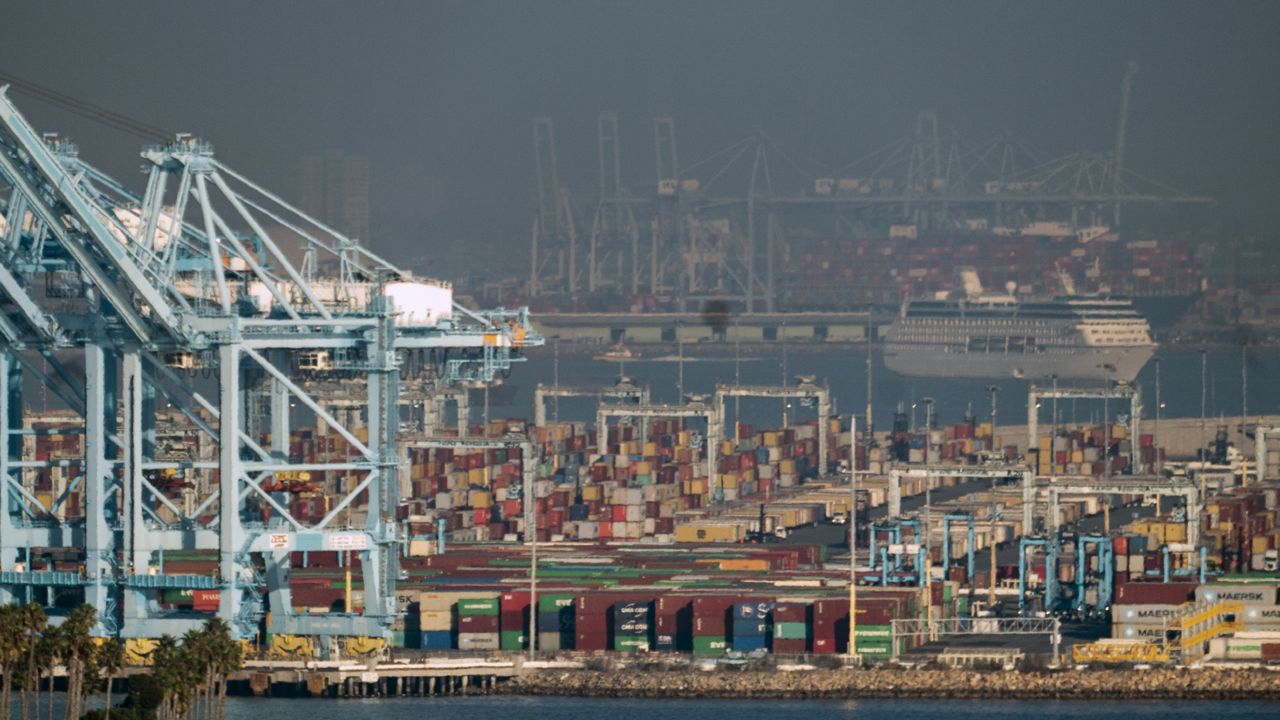The Biden administration on Wednesday announced a $450 million investment in the nation’s ports to help them “expand capacity and improve the movement of goods through our supply chains,” the White House said in a statement.
The funds come from the $1.2 trillion Bipartisan Infrastructure Law, passed last year, which in total will award $17 billion to both ports and waterways over the course of the coming years. The grants will be available through the Port Infrastructure Development Program, which is typically funded through the appropriations process.
This year's $450 million investment is nearly double the $241 million in grant money awarded last year, which funded major port improvement projects across 19 states and one territory. Projects in 2021 included converting vacant industrial areas, supporting offshore wind manufacturing projects as well as fortifying rail infrastructure and intermodal connections.
“We’re proud to announce this funding to help ports improve their infrastructure — to get goods moving more efficiently and help keep costs under control for American families,” transportation secretary Pete Buttigieg wrote in an announcement. “President Biden is leading the largest ever federal investment in modernizing our country’s ports, which will improve our supply chains and the lives of Americans who depend on them.”
This year’s program will focus on projects that lower port emissions, enhance resilience to climate change and increase the use of green technology.
“These grants will help us expand terminals, construct new piers, create rail yards and build storage facilities so that goods move more quickly and we can help bring prices down, all while helping to reduce the pollution that people breathe in communities near ports,” senior administration officials said in part.
There will be several criteria for a port project to be considered for funding: they must enhance safety, efficiency and/or reliability while also improving the movement of goods or services across the country. Additional "merit criteria" include "how a project could address climate change and environmental justice and how it would advance equity and create opportunities," officials added.
Private entities — like port operators or technicians — will not be able to apply for a solo grant, and will instead have to partner with a government agency. Federal agencies, however, are not eligible to apply for the funds; projects that would "result in improvements to federal property" are also ineligible for the grant money.
Applications for the grants will be due by midnight on May 16, with responses expected by this fall. Grants for each state will be capped at $112.5 million for all statewide projects funded by the port development program.
The Department of Transportation plans to release a report detailing supply chain troubles on Wednesday, which will contain policy recommendations on how to implement the infrastructure law funds.
The U.S. has been plagued with supply chain issues over the course of the pandemic, a product of complicated factors that include bouts of poor weather, labor shortages and outsized demand.
Some ports, like those in Los Angeles and Long Beach, continue to face backlogs because so many workers were out sick with the highly contagious delta variant of COVID-19 in January.
“The causes of today's supply chain disruptions are complex, but the impact is simple: Americans are paying more and waiting longer for the goods they need,” senior administration officials said.



